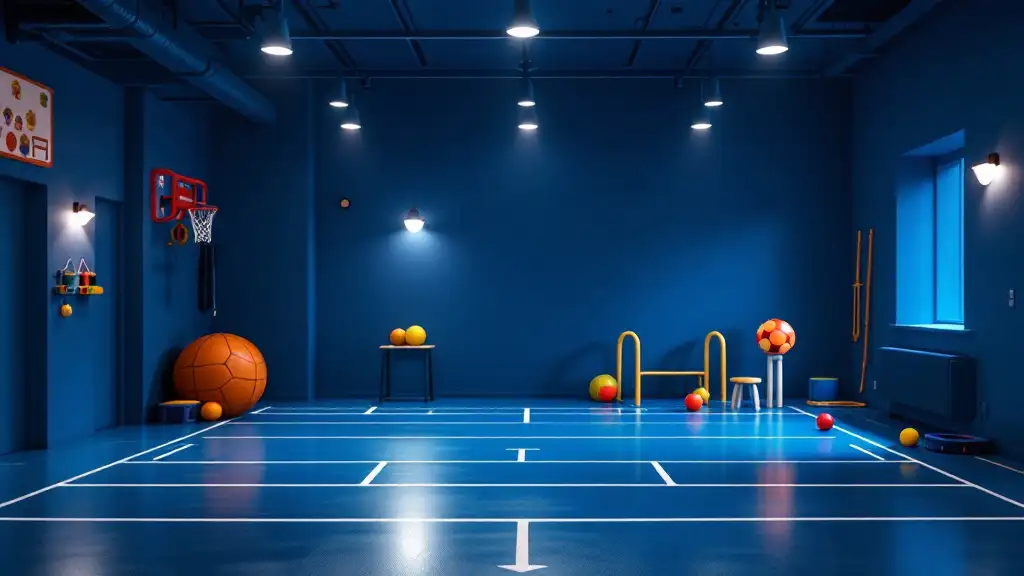
Introduction to Occupational Therapy and Cognitive Growth in Children
Occupational therapy (OT) plays a critical role in enhancing cognitive skills among children, especially those with developmental delays, neurological conditions, or other health challenges. By employing evidence-based strategies tailored to each child's unique needs, OT helps foster essential mental processes such as attention, memory, executive functions, and social skills. Early intervention is particularly vital, as it capitalizes on neural plasticity during early childhood, promoting long-term developmental gains. This article explores the ways occupational therapy supports cognitive development, the interventions used, assessment tools employed, and the evidence backing its effectiveness.
Targeted Cognitive Skills in Pediatric Occupational Therapy
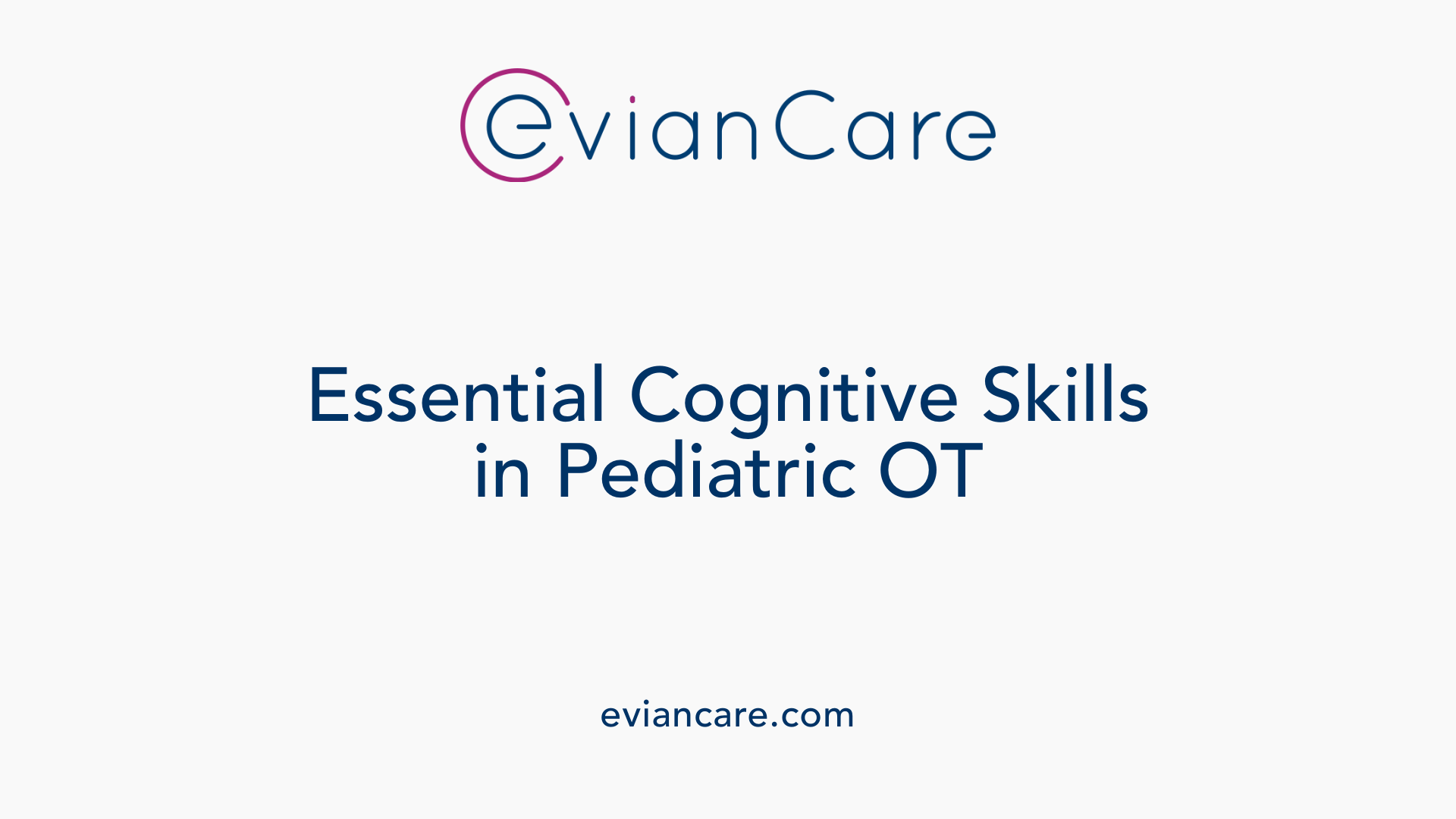
What are cognitive skills targeted by occupational therapy for children?
Occupational therapy (OT) for children focuses on developing several essential mental skills to improve overall functioning and independence. These include attention, which helps children stay focused on tasks; memory, vital for learning and recalling information; organization, which enables children to plan and manage activities efficiently; and planning, necessary for completing complex tasks successfully.
OT approaches are typically playful and engaging, incorporating activities tailored to each child's unique needs. For example, therapists may use games, problem-solving tasks, or sensory activities to promote cognitive growth.
Beyond basic skills, OT emphasizes enhancing executive functions, which include self-control, flexible thinking, and goal-setting. Development of communication and social skills is also a priority, promoting positive interactions and peer relationships.
Sensorimotor integration—how children process sensory information—is another critical focus area, helping children better navigate their environment.
Family involvement is central to therapy success. Educating parents and caregivers about strategies to support cognitive development at home ensures consistent practice and reinforcement.
The overarching goal of pediatric occupational therapy is to foster holistic growth—that is, improving cognitive abilities, social competence, emotional regulation, and daily life skills. All interventions are designed to be safe, enjoyable, and developmentally appropriate, encouraging children to reach key developmental milestones and thrive both at school and in everyday activities.
How Occupational Therapy Promotes Cognitive Development
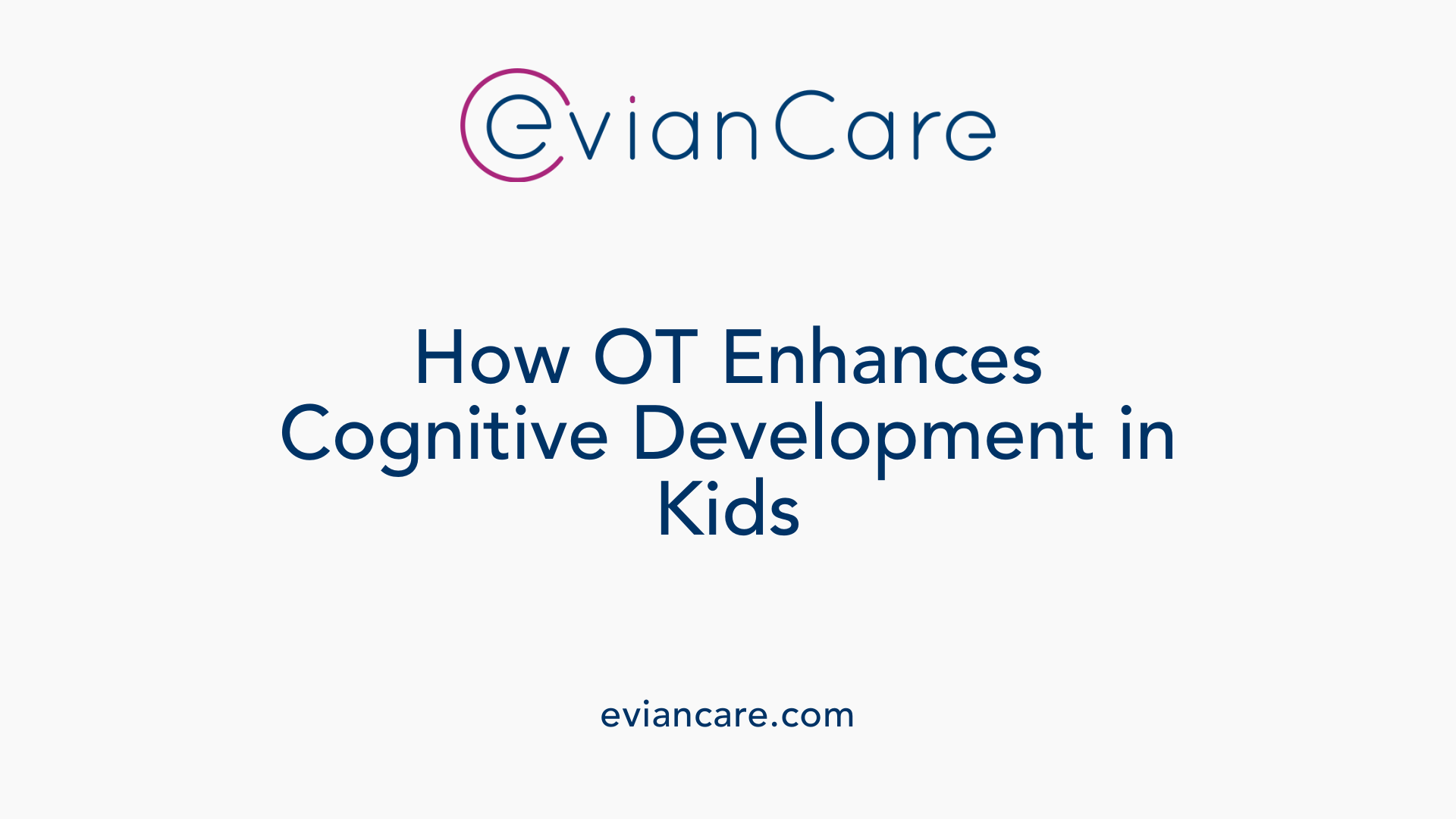
How does occupational therapy improve children's cognitive development?
Occupational therapy plays a vital role in supporting and enhancing the cognitive abilities of young children. Therapists tailor interventions to help children develop crucial skills such as problem-solving, attention, and visual-perceptual processing. Through engaging, structured activities, children improve their fine motor skills, eye–hand coordination, and sensory processing capabilities, all of which are fundamental for cognitive tasks and learning.
OTs often incorporate play-based activities that encourage children to learn new ways to approach daily activities, fostering a sense of independence and boosting confidence. This independence supports cognitive growth by enabling children to explore, question, and solve problems more effectively.
In addition to honing cognitive skills, occupational therapy addresses behavioral and social skills. Children learn to manage their emotions, interact positively with peers, and develop social understanding, which broadens their ability to engage with their environment.
Overall, occupational therapy offers targeted, evidence-based strategies that strengthen cognitive functions essential for academic achievement and daily life proficiency. This comprehensive approach not only promotes mental and physical development but also helps children become more self-reliant and motivated learners.
Interventions and Strategies for Cognitive Enhancement in Children
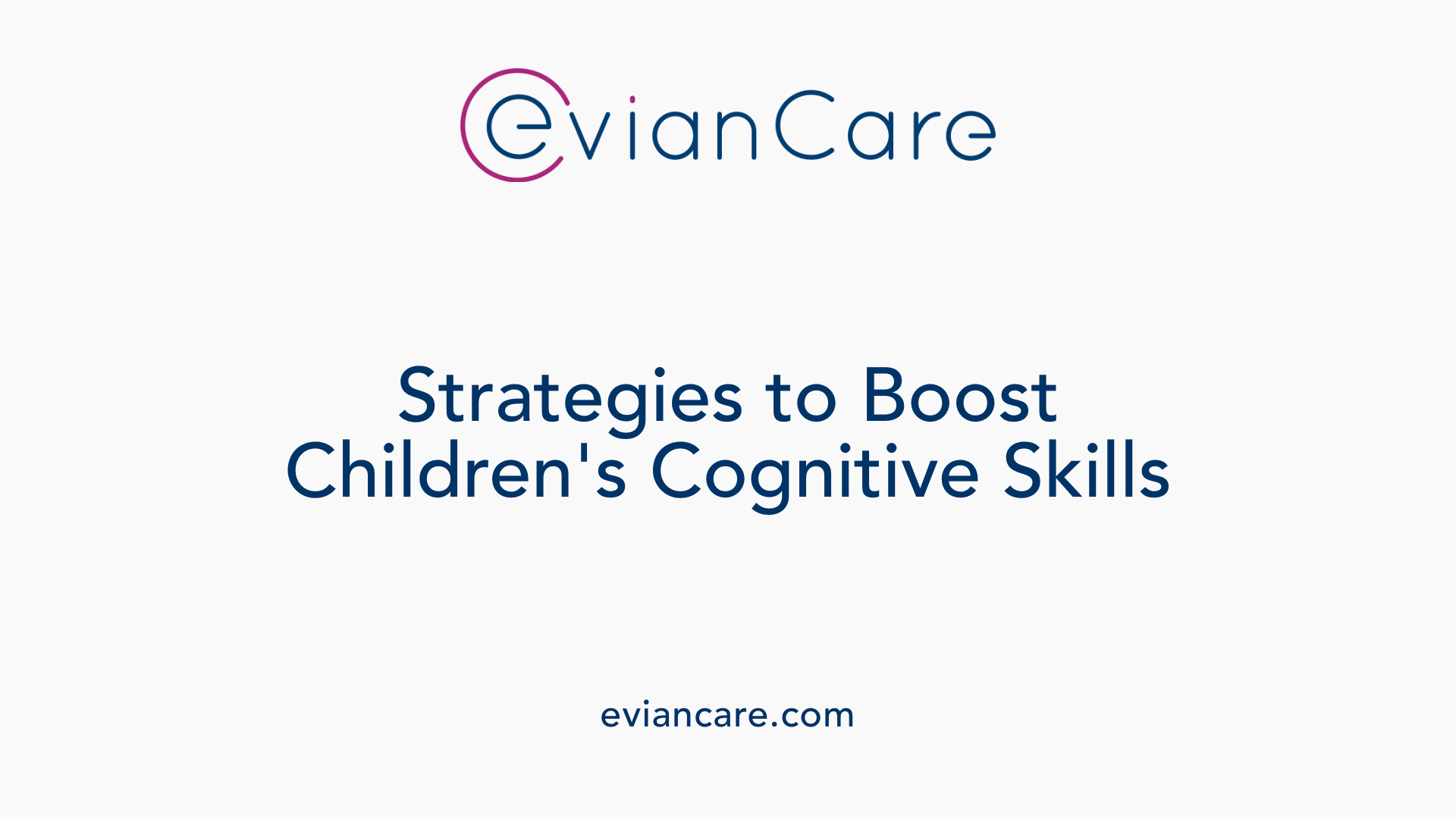 Occupational therapists employ a variety of targeted interventions to boost cognitive skills in young children. These approaches are often tailored to meet each child's unique needs and developmental level.
Occupational therapists employ a variety of targeted interventions to boost cognitive skills in young children. These approaches are often tailored to meet each child's unique needs and developmental level.
One common approach is individualized cognitive training, which focuses on specific mental processes such as attention, memory, and executive functions like problem-solving and decision-making. Therapists design exercises that train children to concentrate, retain information, and approach challenges systematically.
Attention and memory exercises play a significant role in therapy sessions. For instance, activities that require children to focus on particular tasks over sustained periods help develop their attention span. Memory can be enhanced through repetition-based exercises, visual organization, and the use of imagery techniques.
Building problem-solving skills involves breaking down complex tasks into manageable steps, encouraging children to generate solutions, and reinforcing flexible thinking. These activities improve cognitive flexibility and foster independence.
Assistive technology and adaptive equipment are valuable tools integrated into therapy to support cognitive development. Memory aids, visual schedules, and specialized communication devices assist children in managing daily routines and learning tasks.
Behavioral strategies are also employed to reinforce positive behaviors and promote cognitive engagement. Techniques such as visual cues, reinforcement charts, and structured routines help children develop better focus and task management.
Overall, occupational therapists focus on creating a comprehensive, child-centered plan that includes exercises, technology, and behavioral techniques. The goal is to improve cognitive functioning, which directly impacts independence and participation in everyday activities.
Assessment Tools and Evidence Supporting Occupational Therapy in Cognitive Development

What assessments are used in occupational therapy to evaluate cognitive skills in children?
Occupational therapists employ a range of standardized assessments to measure various aspects of cognitive skills in young children. These tools include the Bayley-4, Beery VMI, and the Developmental Test of Visual Perception, which evaluate visual-motor integration, perceptual skills, and overall developmental progress.
For children with specific cognitive or academic concerns, tests like the DOTCA-CH™ (Developmental Test of Cognitive Abilities - Children’s Version) are utilized. The DOTCA-CH™ assesses perceptual, motor, and cognitive skills, helping therapists identify areas needing intervention. Neuropsychological tests such as the NEPSY and the Behavior Rating Inventory of Executive Function (BRIEF) are also common; they focus on memory, attention, executive functions, and behavioral regulation.
Beyond these, the Canadian Occupational Performance Measure (COPM) allows therapists and families to pinpoint individual goals related to daily activities impacted by cognitive challenges. This personalized approach ensures that therapy targets meaningful and functional outcomes for each child.
In addition to formal tests, observational methods play a vital role. Clinical observation and functional performance assessments provide real-world insights into a child's abilities and help tailor interventions more effectively. The choice of assessment depends on the child's development stage, specific needs, and the clinical setting.
Gathering comprehensive evaluation data through these tools enables occupational therapists to create targeted, evidence-based strategies that support cognitive growth and enhance daily functioning. These assessments form the foundation for monitoring progress over time, ensuring that interventions remain effective and responsive to each child's evolving capabilities.
The Evidence Base and Impact of Occupational Therapy on Cognitive Skills
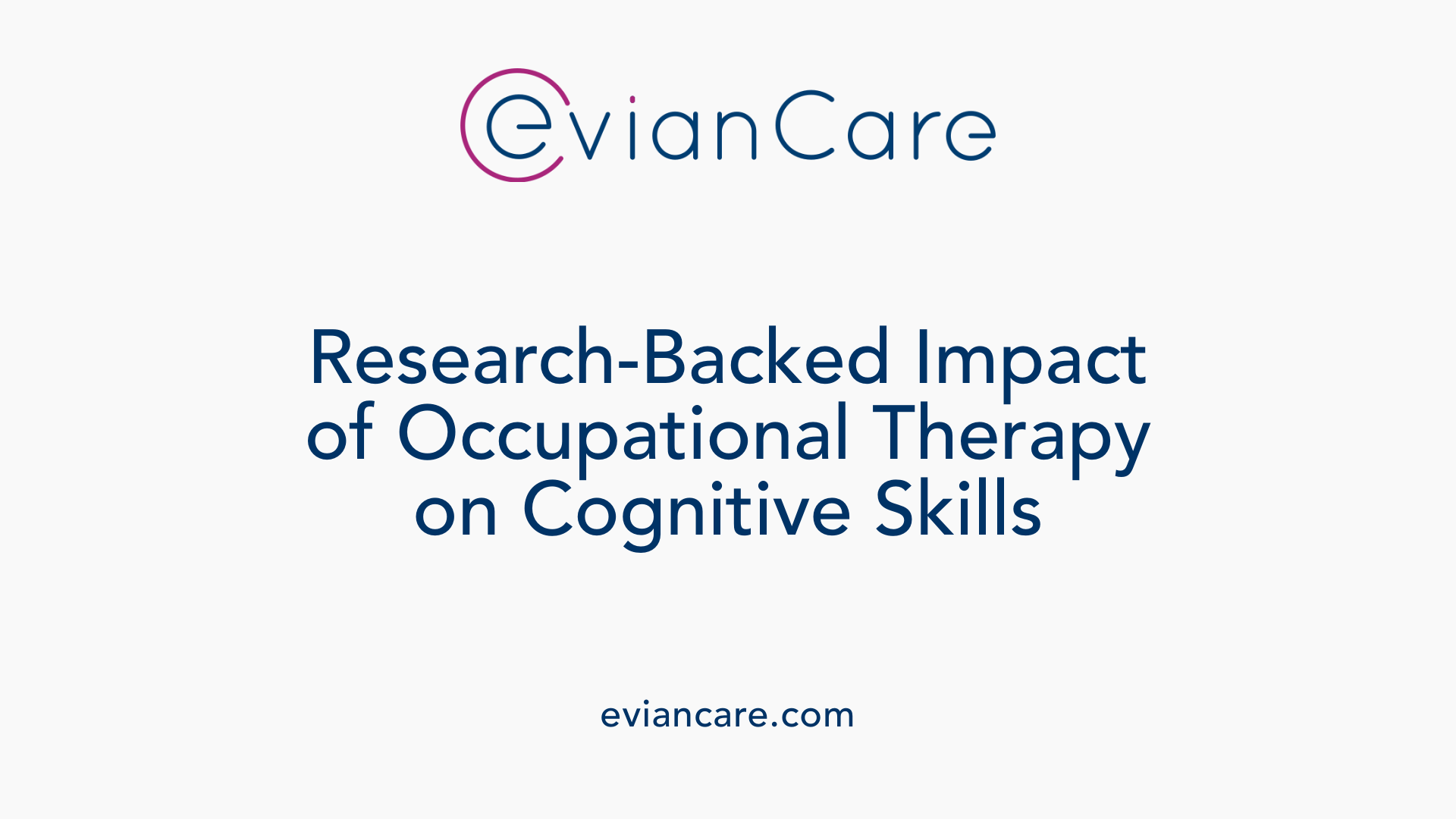 Research and systematic reviews underline the valuable role occupational therapy (OT) plays in developing cognitive skills in children aged 0-5. A recent systematic review highlighted 13 studies that focused on interventions used by occupational therapists to improve cognition in this age group. These studies, which ranged from Level I to IV evidence, demonstrated that developmental interventions in various settings—including neonatal intensive care units, homes, childcare centers, and preschools—can lead to measurable gains in early cognitive development.
Research and systematic reviews underline the valuable role occupational therapy (OT) plays in developing cognitive skills in children aged 0-5. A recent systematic review highlighted 13 studies that focused on interventions used by occupational therapists to improve cognition in this age group. These studies, which ranged from Level I to IV evidence, demonstrated that developmental interventions in various settings—including neonatal intensive care units, homes, childcare centers, and preschools—can lead to measurable gains in early cognitive development.
The effectiveness of these interventions is particularly evident in infants and preschoolers. For example, programs that educate parents of preterm infants to be more responsive and sensitive resulted in improved cognitive outcomes and enhanced joint attention, a foundation for learning and social interaction. Additionally, interventions targeting joint attention alone significantly increased children’s ability to generalize skills to new situations, boosting play, language, and social interactions, especially in preschoolers with autism.
The compiled evidence suggests that occupational therapy not only supports immediate developmental milestones but also influences long-term outcomes. Children benefiting from early OT often show improvements in executive functions such as attention, memory, and problem-solving. These benefits translate into better school readiness and daily life skills, emphasizing the importance of early intervention.
Evaluation tools like the WISC, BASC, and CAS are employed to measure cognitive progress, allowing tailored treatment plans and adjustments based on progress. Overall, the current body of evidence affirms that targeted, individualized occupational therapy interventions are effective in fostering essential cognitive abilities in young children, setting a strong foundation for lifelong development.
Conclusion: Enhancing Children's Future Through Occupational Therapy
Occupational therapy provides a comprehensive, tailored approach to fostering cognitive development in children. By targeting core skills like attention, memory, and problem-solving, and employing evidence-based strategies, OT empowers children to become more independent, confident, and capable of reaching their full potential. Early intervention, family involvement, and continuous assessment are key components that ensure effective outcomes. As research continues to evolve, occupational therapy remains a vital, dynamic resource in supporting children’s cognitive growth and overall development.
References
- Systematic review of occupational therapy interventions to improve ...
- Systematic Review of Occupational Therapy Interventions to ...
- Cognitive Skills / Rehabilitation | Occupational Therapy and Physical ...
- Cognitive Skill Building — Little Land Pediatric Therapy ...
- Occupational Therapy | Nemours KidsHealth
- How Occupational Therapy Can Help Your Child's Cognitive ...
- Developmental Delays: How Occupational Therapy Fosters Growth
- Occupational Therapy for Cerebral Palsy - Improve Daily Skills










